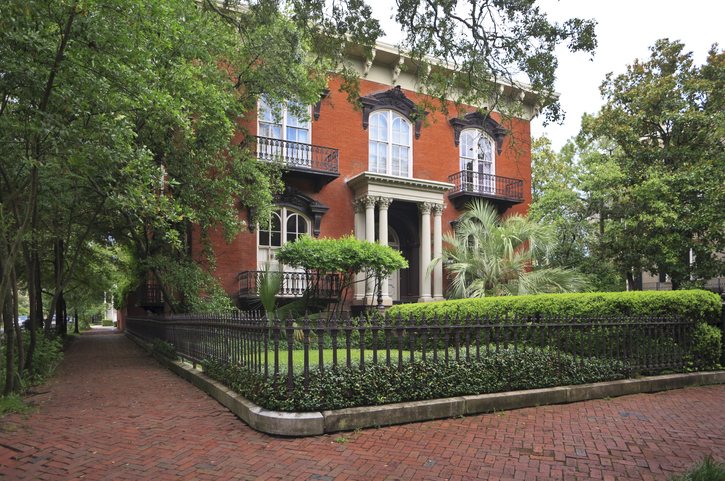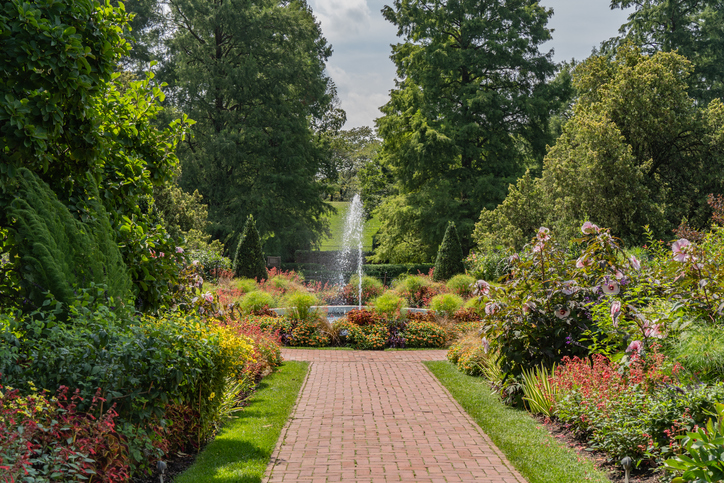
“Buying a historic home is an adventure – one that comes with charm, quirks and a deep sense of history,” says Brian Larson, treasurer of the Realtors® Association of Metropolitan Pittsburgh. “But before falling in love with the ornate woodwork and grand staircases, buyers should understand the realities of owning a piece of the past.”
Here are seven things Pennsylvania Realtors® advise homebuyers to consider before buying a historic home.
1. Understanding the rules and regulations is important.
“Living in a historic home often means adhering to specific preservation guidelines,” Larson says. “Communities with historic designations can have strict regulations on paint colors, materials and modifications. Something as simple as replacing a window or updating a porch railing may require approval to ensure that any changes maintain the home’s historic integrity. While this level of oversight can feel restrictive, it also protects the aesthetic and cultural value of these neighborhoods.”
“I don’t think a buyer should be scared to purchase in a historic district. However, you do need to be aware of the rules,” adds Wendell Hoover, 2023 president of the Greater Harrisburg Association of Realtors®. “It’s important to note that all historic districts do not have the same rules, so it’s important for potential buyers to review the actual rules in the area they’re considering buying.”
Larson warns that homeowners who violate historic district regulations may be forced to undo their work, whether that means repainting, replacing windows or even reconstructing elements to their original state. Knowing the rules beforehand can prevent unnecessary work and expenses.
2. Higher maintenance costs should be expected.
“There’s no sugarcoating it – owning a historic home can be expensive,” says Susan Kichman, a member of GHAR and a past member of the Historical Architectural Review Board in Mechanicsburg. “The materials and craftsmanship that make these homes special often require specialized maintenance and, in some cases, custom restoration.”
“Energy efficiency is another concern,” she adds. “Older windows, outdated insulation and aging HVAC systems can lead to higher utility bills. Additionally, some insurance companies charge more for historic homes, or they may require special coverage.”
3. Proactivity is key.
Although historic homes require more maintenance, being proactive can help catch issues before they become serious, reducing costs overall.
“I live in a home built in 1904, and while its craftsmanship and character are unmatched, it requires regular walkthroughs that ensure that all systems – electrical, plumbing, heating – are running properly,” Larson shares. “Small issues can escalate quickly in older homes, so staying proactive is key.”
4. Financial incentives may be an option.
“On the bright side, buyers may have access to grants, tax credits or financial assistance to help with restoration costs,” Kichman notes. “Many states and municipalities offer incentives for historic preservation, so buyers should explore available programs before assuming renovations will be entirely out of pocket.”
5. Long-term value and resale potential should factor into the decision.
“Many historic districts see strong property value appreciation, especially if well-maintained and desirable,” Kichman adds. “However, the pool of buyers for historic homes is more niche – some will appreciate the charm, while others will be deterred by the maintenance and restrictions. Buyers need to weigh the emotional appeal versus the long-term practicality when deciding if a historic home is the right investment for them.”
6. Local neighbors can help provide insight.
“One of the best things prospective buyers can do is attend neighborhood meetings and talk with existing homeowners,” Larson states. “Longtime residents can offer valuable insight into the realities of living in a historic district, from the process of getting renovation approvals to recommendations for skilled contractors familiar with historic materials.”
7. Owning a historic home can be incredibly rewarding.
“Owning a historic home isn’t for everyone, but for the right buyer, it’s an incredibly rewarding experience,” shares Kichman, who also notes the deep sense of community that historic districts often provide. “By setting realistic expectations and ensuring they understand both the joys and challenges, Realtors® help buyers make informed decisions that align with their lifestyle and financial goals.”
“I personally love the character of an older home, as my husband and I restored a circa 1935 home 10 years ago,” she adds. “Not for the faint of heart, but I wouldn’t change a thing.”
“While historic homes require extra care, they also offer an unparalleled sense of character and history,” Larson concludes. “There’s a unique pride that comes with preserving a home’s story for future generations. For buyers willing to embrace the responsibilities and nuances of historic homeownership, the rewards far outweigh the challenges.”
Topics
Member Discussion
Recent Articles
-
Lessons Learned From Long Island Divided
- April 16, 2025
- 5 min. read
Investigative reporter Bill Dedman shared the lessons learned from the 2019 Long Island Divided undercover investigation, along with some fair housing best practices.
-
NAR Mandatory Fair Housing Training
- April 15, 2025
- 1 min. read
One option to meet NAR’s mandatory fair housing/anti-bias training requirements is the newly revised Fairhaven 2.0: Essential Fair Housing Education.
-
7 Places in Pa. to See Spring Blooms
- April 14, 2025
- 3 min. read
For those ready to get outside and enjoy nature after a cold winter, here are seven places across Pennsylvania that offer views of beautiful spring blooms and peacefully refreshing landscapes.
Daily Emails
You’ll be the first to know about real estate trends and various legal happenings. Stay up-to-date by subscribing to JustListed.



